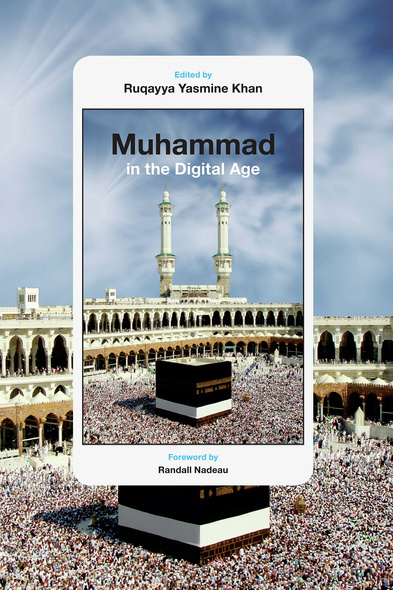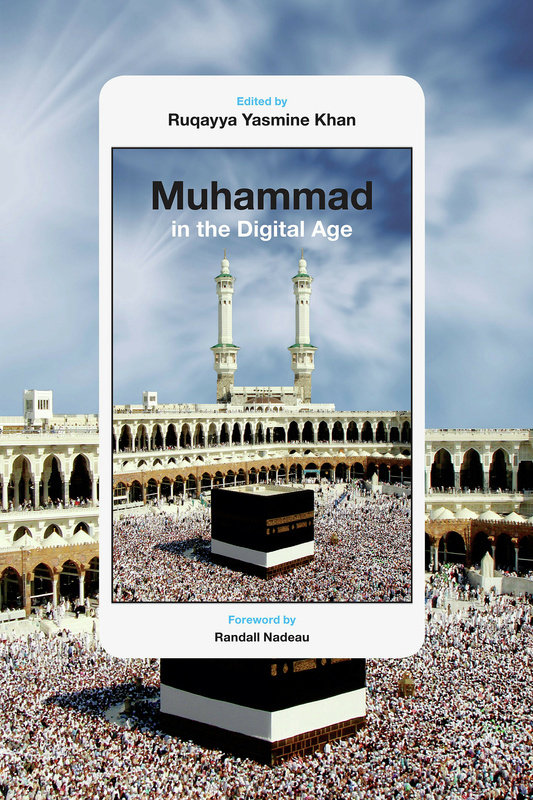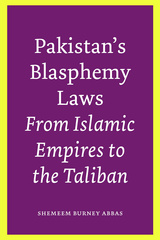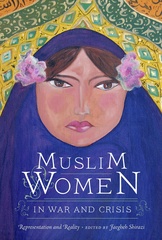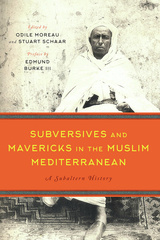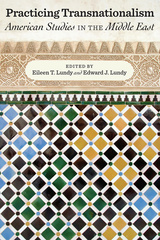Muhammad in the Digital Age
The early twenty-first century has experienced an unrivaled dissemination of information and misinformation about Islam, its prophet Muhammad, and its followers, largely facilitated by the fact that the tragedy of 9/11 roughly coincided with the advent of the digital age. In the first collection of its kind, Ruqayya Khan has compiled essays that treat Muhammad and the core elements of Islam as focal points in an exploration of how the digital era—including social media and other expressions—have both had an effect on and been affected by Islam.
Scholars from a variety of fields deal with topics such as the 2005 cartoon controversy in Denmark and the infamous 2012 movie trailer “Innocence of Muslims” that some believe sparked the attacks on the US consulate in Benghazi, as well as how the digitization of ancient texts have allowed the origins of Islam to be studied in new ways. Other essays examine how Muhammad’s wives have been represented in various online sources, including a web comic; the contrasting depictions of Muhammad as both a warrior and peacemaker; and how the widespread distribution of “the look” of Islamic terrorists has led to attacks on Sikhs, whose only point of resemblance to them may be a full beard. These findings illuminate the role of the Internet in forms of representation, advocacy, and engagement concerning Islam and Muslims in our world today.
With the explosion of Internet/cyber intrusions into every aspect of modern life, it is unsurprising that the prophet Muhammad should come under cyber-scrutiny. Very public events, such as the Danish cartoons and the YouTube video ‘Innocence of' Muslims’ have shown that representations of Muhammad and the story of Muhammad are both sensitive and a target for polemics. This book offers a number of different perspectives on this phenomenon, all related to the effect of new modern tools of engagement. Several essays are exceptional in their insights and fairness.
- Foreword by Randall Nadeau
- Acknowledgments
- Introduction (Ruqayya Yasmine Khan with Mashal Saif)
- Chapter 1. Muhammad and the Debates on Islam's Origins in the Digital Age (Fred M. Donner)
- Chapter 2. Muhammad the Peacemaker, Muhammad the Warrior: Visions of Islam's Prophet after 9/11 (Jonathan Brockopp)
- Chapter 3. Art History and the Contemporary Politics of Depicting Muhammad: The Case of the Danish Cartoon Controversy (Jytte Klausen)
- Chapter 4. Postmodern Politics: Manipulating Images of Islam in Contemporary Europe (Peter O'Brien)
- Chapter 5. Of Cyber Muslimahs: Wives of the Prophet and Muslim Women in the Digital Age (Ruqayya Yasmine Khan)
- Chapter 6. Behind Every Good Muslim Man: Fictional Representations of ʿAʾisha after 9/11 (Aysha Hidayatullah)
- Chapter 7. Muslimophobia, Racialization, and Mistaken Identity: Understanding Anti-Sikh Hate Violence in Post-9/11 America (Simran Jeet Singh)
- Chapter 8. Finding an Enemy: Islam and the New Atheism (Taner Edis)
- Conclusion (Ruqayya Yasmine Khan)
- References
- Contributors
- Index

